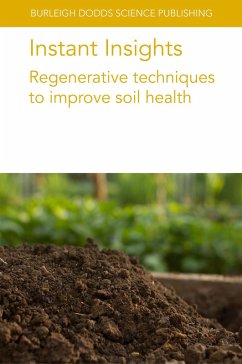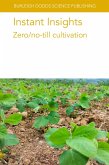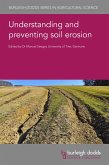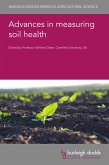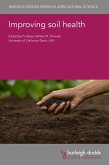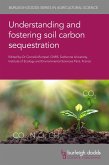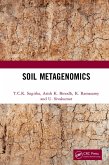This book features four peer-reviewed reviews on regenerative techniques to improve soil health.
The first chapter discusses some common issues regarding the use of bio-based fertilisers, such as the concentration of nutrients leading to losses of reactive nitrogen (N) and phosphorus into the environment.
The second chapter provides a critical evaluation of the potential of compost to improve soil health, as well as its effect on soil nutrient cycling, soil hydraulic properties, crop productivity, soil biodiversity and environmental quality. Two case studies on the benefits and risks of using compost in perennial and annual crops are also included.
The third chapter reviews the benefits of service crops, including cover and catch crops, in both intensive cropping systems and low input systems. The chapter discusses an array of studies from temperate Europe to illustrate these benefits, including the use of service crops for reducing N leaching losses.
The final chapter addresses how crop rotations affect nitrogen flows in organic farming systems and how these rotations can be utilised to optimise the nitrogen cycle and improve nitrogen use efficiency. The chapter utilises 30 years' worth of data collected from over 90 different temperate field studies published between 1990 and 2020.
What is an Instant Insight?
An Instant Insight gives you immediate access to key research on a topic, allowing you to get right to the heart of a subject in an instant and empowering you to contribute to sustainable agriculture.
The first chapter discusses some common issues regarding the use of bio-based fertilisers, such as the concentration of nutrients leading to losses of reactive nitrogen (N) and phosphorus into the environment.
The second chapter provides a critical evaluation of the potential of compost to improve soil health, as well as its effect on soil nutrient cycling, soil hydraulic properties, crop productivity, soil biodiversity and environmental quality. Two case studies on the benefits and risks of using compost in perennial and annual crops are also included.
The third chapter reviews the benefits of service crops, including cover and catch crops, in both intensive cropping systems and low input systems. The chapter discusses an array of studies from temperate Europe to illustrate these benefits, including the use of service crops for reducing N leaching losses.
The final chapter addresses how crop rotations affect nitrogen flows in organic farming systems and how these rotations can be utilised to optimise the nitrogen cycle and improve nitrogen use efficiency. The chapter utilises 30 years' worth of data collected from over 90 different temperate field studies published between 1990 and 2020.
What is an Instant Insight?
An Instant Insight gives you immediate access to key research on a topic, allowing you to get right to the heart of a subject in an instant and empowering you to contribute to sustainable agriculture.
Dieser Download kann aus rechtlichen Gründen nur mit Rechnungsadresse in A, D ausgeliefert werden.

